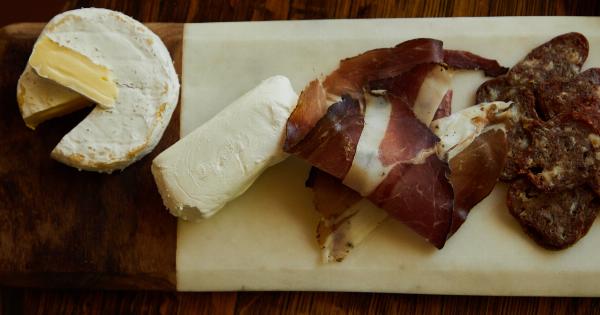As we age, our dietary needs change significantly. At 50 years old, it is essential to take certain steps to ensure that you maintain good health and wellbeing. Limiting your diet is an important aspect of this.
In this guide, we are going to discuss the various steps you can take to limit your diet and improve your overall health.
What Is a Limited Diet?
A limited diet is any diet that restricts certain food groups or nutrients. This could involve limiting your intake of fats, carbohydrates, or processed foods.
The goal of a limited diet is typically to reduce your calorie intake, promote weight loss, and improve your overall health.
Why Should You Limit Your Diet?
Limiting your diet is essential for maintaining good health as you age. Here are some of the key reasons why you should consider limiting your diet:.
- Reduce your risk of chronic diseases such as heart disease, diabetes, and cancer
- Lose weight and maintain a healthy weight
- Improve your digestion and reduce bloating and other digestive issues
- Boost your energy levels and reduce fatigue
- Reduce inflammation in the body
Tips and Tricks: How to Limit Your Diet
Now that we’ve established why you should limit your diet, let’s take a closer look at how you can do this. Here are some tips and tricks for limiting your diet:.
Eat More Whole Foods
One of the best ways to limit your diet is to eat more whole foods. This means focusing on fresh fruits and vegetables, lean proteins, and whole grains.
These foods are typically less processed and lower in calories than processed foods, which can help you lose weight and improve your overall health.
Avoid Processed Foods
Processed foods are typically high in calories, sugar, and unhealthy fats. They are also often lacking in nutrients. For these reasons, it is best to avoid processed foods whenever possible.
Instead, opt for whole foods that are nutrient-dense and low in calories.
Limit Your Intake of Added Sugars
Added sugars are one of the leading causes of weight gain and other health problems. They are found in many processed foods, including desserts, sodas, and cereals.
To limit your intake of added sugars, focus on eating whole foods that are naturally sweet, such as fruits.
Reduce Your Sodium Intake
Excess sodium can lead to high blood pressure, which is a major risk factor for heart disease. To reduce your sodium intake, avoid foods that are high in salt, such as processed meats, canned soups, and chips.
Instead, opt for fresh foods that are low in sodium, such as fresh vegetables and lean proteins.
Drink Plenty of Water
Drinking plenty of water is essential for maintaining good health. It helps to keep your body hydrated and can also help you to feel full, which can prevent overeating. Aim to drink at least 8 glasses of water per day.
Practice Portion Control
Portion control is an essential part of any limited diet. To practice portion control, use smaller plates and bowls, and measure your food before you eat it. This can help you to avoid overeating and can promote weight loss.
Don’t Skip Meals
Skipping meals is a common mistake that many people make when trying to lose weight. However, this can actually be counterproductive. When you skip meals, you are more likely to overeat later in the day, which can lead to weight gain.
Instead, focus on eating smaller, more frequent meals throughout the day.
Get Plenty of Fiber
Fiber is an essential nutrient that helps to regulate digestion and prevent constipation. It can also help you to feel full, which can prevent overeating.
To get more fiber in your diet, focus on eating whole foods such as fruits, vegetables, and whole grains.
Avoid Late-Night Snacking
Late-night snacking is a common cause of weight gain. This is because your metabolism is slower at night, which means that you burn fewer calories. To avoid late-night snacking, try to eat your last meal at least two hours before bed.
Conclusion
Limiting your diet is an important step in maintaining good health and wellbeing as you age. By following these tips and tricks, you can reduce your calorie intake, lose weight, and improve your overall health.
Remember to consult with your healthcare provider before making any significant changes to your diet.































